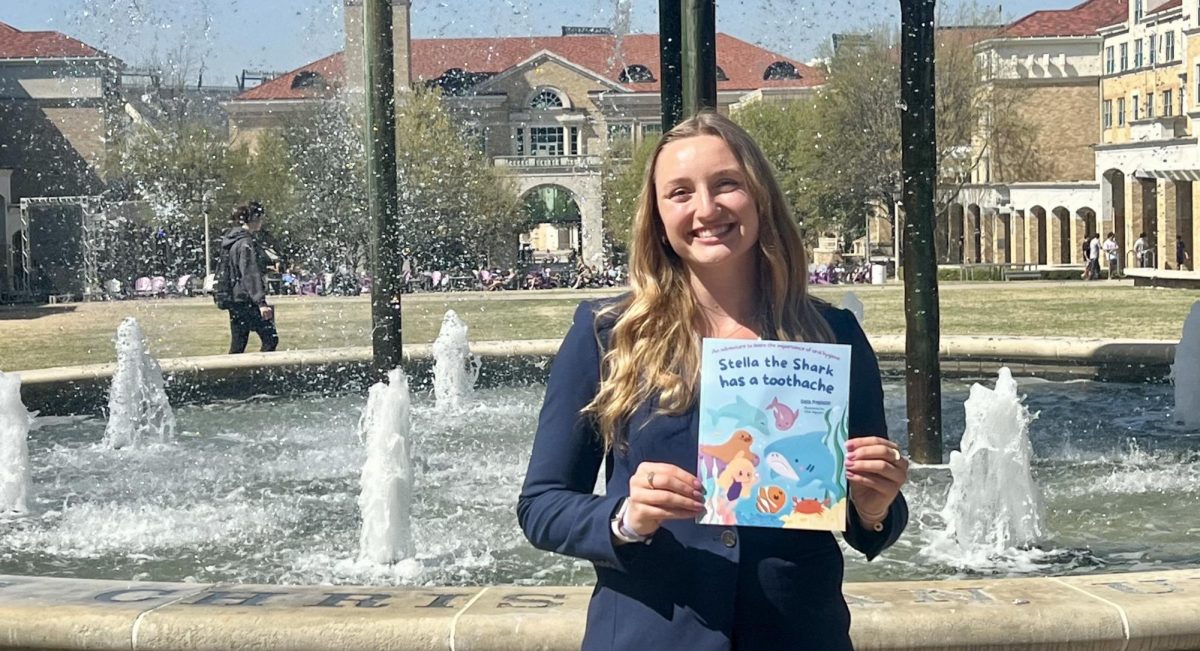With 13 states, including Texas, still ruling same-sex marriage unconstitutional, the debate whether Christianity supports or condemns homosexuality is far from over.
Although the issue is debated worldwide, members of the TCU and Fort Worth community have particularly strong opinions about it.
Local pastor Donnie Romero preached a sermon that posted to YouTube in December. During the sermon, Romero referred to homosexuals as “an abomination to God” and “pedophiles.”
“Given an opportunity to snatch one of your children, they would do it in a heartbeat,” Romero said during the sermon.
Rev. Todd Boling, an associate chaplain at TCU, said Romero doesn’t represent the majority of the community though.
“I think people in Fort Worth tend to be pretty accepting and kind,” Boling said. “But I don’t see Fort Worth being a place where people in the LGBTQ community feel celebrated.”
Boling is one of several individuals in Fort Worth with opinions about religion and homosexuality. He is tied to both groups as an openly gay ordained Baptist minister.
The struggle to separate religion and homosexuality has had nationwide consequences.
In 2011, a student at a Christian university in Nebraska was expelled after administration discovered her same-sex relationship. Baylor University’s sexual misconduct policy condemns “heterosexual sex outside of marriage” and “homosexual behavior.”
To Boling, people who criticize homosexuality by using the Bible need to understand the historical and cultural contexts of when the text was written.
“Knowing who’s saying something, who they’re saying it to and what’s going on in society that makes those words relevant at that point in time are important if we’re going to fully understand what scripture is communicating to us,” Boling said.
The reverend realized he was gay as early as five years old, but the struggle to reconcile his sexuality led to depression.
“That depression nearly cost me my life,” Boling said, who suffered the depression during his adolescence. “God was an important part of me finding healing and wholeness and getting to a better place.”
Two openly gay TCU students, Casey Miller and James Franklin, are, like Boling, active in their faiths.
“I really struggled with my faith because so many people like society and so many things just tell you you have to pick one,” Miller said. “You can’t be gay and be religious.
“Eventually it came to the point where I just sat down and was kind of like, you know I have to figure out if this is what I want. Do I want to be gay and not be religious or do I want to be religious and not be gay or do I want to be both and pursue that?
“I ultimately decided that I wouldn’t be myself and I wouldn’t be complete if I wasn’t true to who I am.”
Franklin said he has read the Bible’s Leviticus many times, which discusses homosexuality.
“I believe that God is love and that He loves me and that I can use that love and love other people,” Franklin said.
Not all members of the TCU community agree that the LGBTQ and faith communities should be tied.
Mitchell and Spencer Traver are brothers and students at TCU. While they’re supportive of LGBTQ community members, their belief systems do not support LGBTQ individuals actively participating in church.
“Never, in anything that you do, like in any sort of sin on any kind of spectrum, should you actively walk in sin and then say you’re pursuing Christ,” Mitchell Traver said. “The cross of Christ can heal anything…but it also takes time. God’s time.”
“Homosexuality is an area of struggle,” Spencer Traver said. “Whether it’ seen that way or not, it’s sin and sin is where we’re gonna struggle. It’s human’s biggest battle.”
Mitchell said that he does not believe that LGBTQ people who are maintaining their homosexual lifestyles should have leadership positions in the church.
“I don’t have a problem with sinner and pastor being synonymous because that’s obvious,” Mitchell said. “Every pastor has sin in their lives…that’s because we’re human.
“In the same way, an actively gay pastor, someone who’s leading the church. I don’t think that’s okay because in scripture it talks about how those who are teachers of the Word are basically held to a higher standard.”
This documentary is part of a senior capstone project. See the documentary’s official website here.






